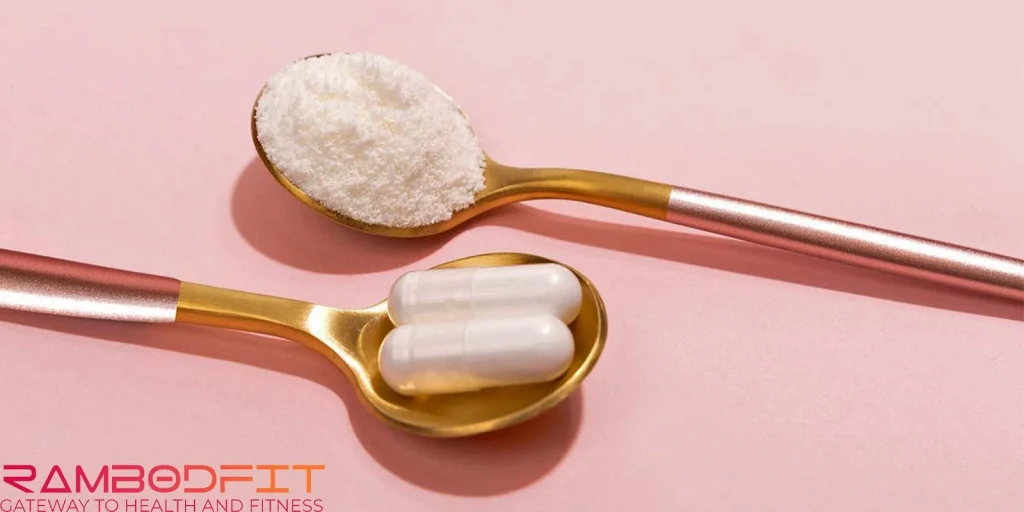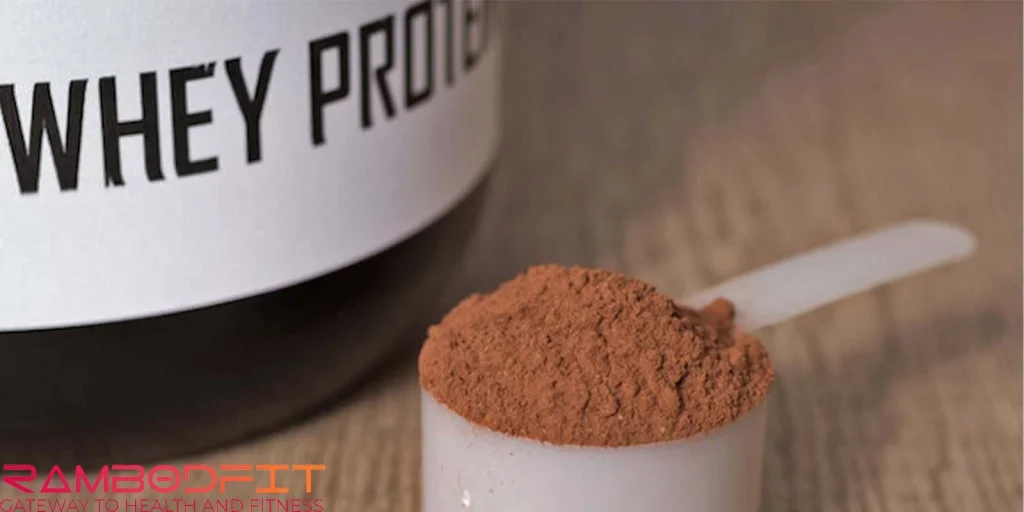


When you visit a supplement store, you’ll find collagen vs whey protein sitting next to each other. They may look similar choices since both are protein sources. But if you consider aspects like recovery, health benefits, and performance, these two types of protein are different.
They don’t share the same amino acid makeup purpose in the body, nor do they have ideal situations to use them. So, how do you decide which one to pick and when to use it?
At Rambodfit, we take a closer look at the differences between collagen vs whey protein, explain the science of their effects, and share practical tips to add them to your daily routine.
Whether you are an athlete building muscle or just aiming to care for your joints and overall health, knowing these differences could change how you use supplements.
Table of Contents

To properly choose between collagen vs whey protein, you need to learn about the basics of these 2 supplements, the differences among them, and the mechanisms they work in the body.
Whey protein comes from milk and offers all nine essential amino acids, making it a complete protein. Its standout feature is the rich amount of branched-chain amino acids (BCAAs), with leucine playing a key role in jumpstarting muscle protein synthesis (MPS) through the mTOR pathway.
Main Reasons to Use Whey Protein:
Did You Know? Studies found that consuming 20 to 30 grams of whey after working out helps most people get the best muscle protein synthesis.
Collagen works as a structural protein and isn’t linked to muscle building. It’s packed with glycine, proline, and hydroxyproline, which are amino acids important to maintain skin bounce, keep joints strong, boost tendon durability, and aid in tissue recovery.
But collagen is not a complete protein. It misses some essential amino acids like leucine. This means it cannot help muscles grow the way whey does, though it still serves other important purposes.
Top Benefits of Collagen:
Pro Tip: Pairing vitamin C with collagen helps the body produce more collagen.
Practical Advice: Choosing What Works and When
Let’s focus on practical examples instead of all the hype:
Choose whey protein to:
Best Time to Take It:
Typical Amount:

Use collagen if you want:
Best Times to Take It:
Pro Tip: Mixing collagen with vitamin C and adding a small amount of leucine or BCAA can provide more well-rounded protein support.
Whey Protein: Things to Watch Out For
Collagen: Points Worth Noting
· Whey protein provides complete amino acids. It works great to build muscle, improve strength, and help recovery. It contains leucine and BCAAs and digests fast. Take it after workouts or anytime to boost your protein intake.
Both serve different purposes—whey boosts physical performance, while collagen strengthens the body’s structure.

If you want bigger biceps or quicker recovery after workouts, whey protein stands out. It offers a full amino acid profile and gets absorbed fast, making it ideal to support muscle growth and repair.
However, if you’re thinking about joint strength, healing connective tissues, or improving skin, then collagen should be your choice.
Using both proteins with a purpose unlocks their full benefits. Think of them as tools, each made for a specific job. Knowing their strengths allows you to improve recovery, boost performance, and overall feel better. Now you know which one is better between collagen vs whey protein.
To Learn More:
Yes, you can. Using both can give added benefits. Whey helps build muscles, while collagen helps repair joints and tissues. Many athletes take whey after workouts and use collagen before exercise or at bedtime.
Yes, it works well for older athletes or those prone to injuries. Collagen may not help you grow muscle, but it can help protect your joints and lower the risk of injuries when combined with weight training.
Yes, if you want to focus on joint health, improve your skin, or recover from injuries. Collagen addresses areas that whey doesn’t because they support different tissues and body systems.